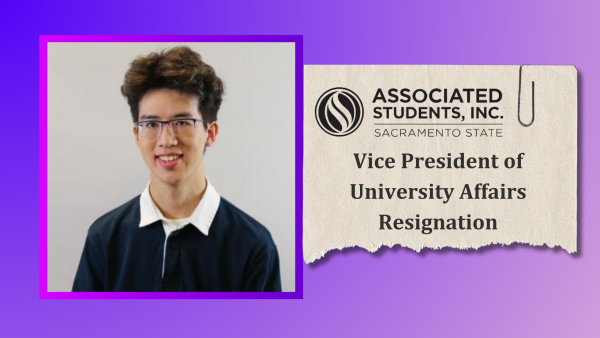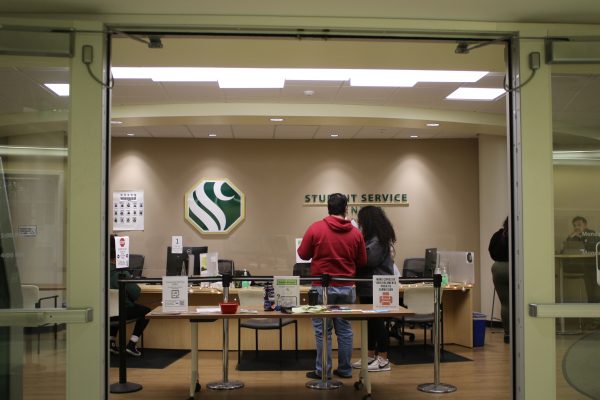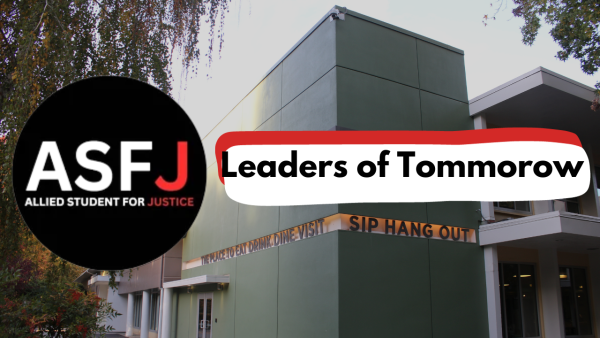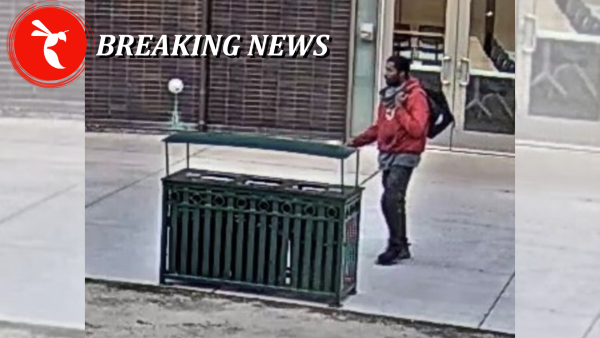Sac State art professor alleges upcoming termination, students lend support
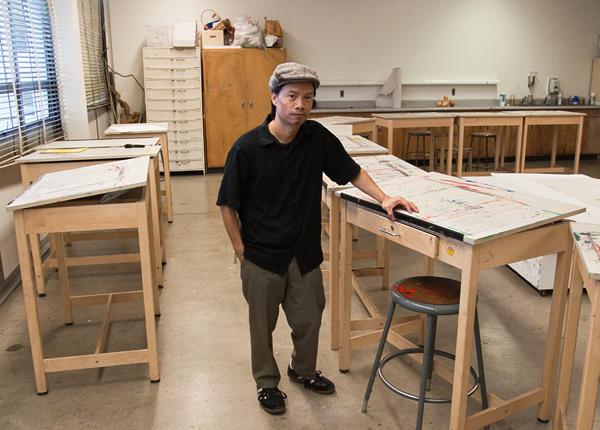
Evri Kwong, assistant professor in the art department, alleges that his job will be terminated after spring 2012.
December 7, 2011
Sacramento State professor Evri Kwong has inspired his students to create a movement in the art department, drawing attention to his alleged termination.
Kwong said he does not know if the department committee’s decision about his employment status is reversible, but he expects to be terminated after spring 2012.
A Facebook page, “Give Evri Kwong Tenure” was created by Sac State student Cat Xia, senior art studio major, along with a petition on www.petitionsite.com addressed to Provost Joseph Sheley, requesting Kwong be granted tenure.
“I began the petition because (Kwong) would talk about his situation and I thought it was wrong,” Xia said. “He’s an awesome professor.”
The Facebook page has 63 fans and the petition has been signed by 34 students. Xia said her goal is 50 signatures.
“I’ve been super busy with school so I haven’t been able to get the petition circulating around campus,” Xia said. “I’m going to try next spring, but I know it will not make a difference at this point.”
Xia hopes her efforts will make administration aware of Kwong’s valuable presence, she said.
“I expected him to get terminated because if you get denied tenure, they don’t keep you,” Xia said. “I feel terrible for Evri because a professor in this situation has a hard time getting a job and it’s already hard right now.”
On a tenure track since 2005, Kwong has been teaching beginning to intermediate painting and drawing.
Kwong said he was apprehensive about the Facebook page and petition after seeing them.
“I think Cat is an amazing artist – very driven and bright,” Kwong said. “But I’m not sure if I like her efforts because I don’t want her to get into trouble. I worry for her.”
Director of Student Conduct Leonard Valdez said in an email statement to The State Hornet university policy does not prohibit the use of Facebook or social media and only the improper use of university resources like the campus website or equipment would be an issue.
“Other than that, the limitations you may encounter would be based on legal limits to free speech including threats, harassment and defamation, which are prohibited,” Valdez said.
Kevin Wehr, president of the Sacramento chapter of the California Faculty Association, said he is not aware of any previous punitive action toward students engaged in activities in support of faculty under review.
“Teaching effectiveness and student evaluations are incredibly important parts of the review process,” Wehr said.
Director of Human Resources Kent Porter said first-time tenure track professors are either approved or denied tenure, usually after six years of probation.
Porter said over the last three academic years, 93 tenure track instructional faculty in the colleges of Academic Affairs were evaluated for tenure under the Retention, Tenure and Promotion process.
Of that number, two faculty members have been denied tenure in the College of Arts and Letters, one of which was in the art department, Porter said.
“Overall, it is unusual for someone not to be able to earn tenure in the CSU system,” Porter said.
Kwong is currently scheduled to teach next spring, Porter said, but could not comment further on individual personnel matters.
University policy requires professors be reviewed in four main areas including scholarly research, community service, teaching effectiveness and service to the university.
“I had the best teaching scores for at least four semesters. I’ve done community service and scouting for the university, had the best exhibition career, scholarly research and done things with the Multi-Cultural Center.” Kwong said. “But (the committee) is trying to say that it is my teaching.”
Kwong did not respond to repeated requests for his review file documents.
Xia said Kwong is free-flowing and gives student artists the opportunity to take initiative and push themselves, while he prepares them for the real world with resources.
“It’s just a different method,” Xia said. “The other professors give more of a workload and push students harder to meet their standards.”
Art Department Chair Daniel Frye and Interim Associate Dean for the College of Arts and Letters Nick Burnett both declined to comment due to university personnel policy.
Kelsey McElroy, junior studio art major, is enrolled in Kwong’s Intermediate Drawing class and found the petition to give him tenure two weeks ago via Google and Facebook.
McElroy does not yet know all the facts, she said, but was “surprised and disappointed” by Kwong’s “weird and suspicious” situation.
McElroy said Kwong stands out among several art teachers.
“I really like him. I think he’s a great, renowned artist,” McElroy said. “He gives a lot of good advice about getting out into the art world instead of just technical advice.”
McElroy said before taking Kwong’s courses she was unaware of art career realities like developing style and dealing with art galleries.
Kwong said he introduced gallery dealers from San Francisco to students and brought in pieces of art from recognized practicing artists.
“Student artists can compete too, just like anybody else, if they’re smart, persistent, assertive and polite,” Kwong said, “and don’t burn bridges.”
Kwong is one of the few minorities in the faculty, Xia said, so his departure would further diminish diversity ethnically and stylistically.
“Kwong does direct social justice pieces and everyone else has abstract pieces,” Xia said.
Kwong said his artwork is about social commentary and political work, which differs greatly from his colleague’s abstract works.
“Our professors are amazing, but the department will be a little less attractive,” Xia said. “Evri has connections with the outside art world and that will be lost.”
Kwong counts among his supporters The Asian American Art Center in New York City, Congresswoman Doris Matsui, and U.C. Hastings School of Law Chancellor Frank Wu.
“There were people from the art world and people who know my work saying my situation is ridiculous,” Kwong said.
Kwong is not afraid to talk about matters such as social issues, Xia said, yet he is a really relaxed person and not a fire-starter.
“He’s not going to just step down, and I respect that about him,” Xia said.
Xia worked at the Multi-Cultural Center last year with Kwong and assisted his show, “I Like America but America Does Not Like Me,” she said.
“I’m not sure what happened over the summer and I’m not clear about the relationship with faculty,” Xia said.
Kwong said he was hired with two other instructors and he does not understand what they did differently to move forward on a tenure track.
“My supervisors were very hands-off,” Kwong said. “There was no guidance whatsoever. I had to learn on my own and try to defend myself.”
A faculty member who is denied tenure or promotion may challenge the decision, Porter said, by filing a faculty status grievance.
The CFA will customarily represent the faculty member during the course of the grievance procedure, Porter said.
“I think the California Faculty Association is supposed to represent me and I feel like they haven’t been trying to fight for me at all,” Kwong said. “They are still under the umbrella of the university.”
In general, grievances are decided upon the merits of the issue, Wehr said, but he could not confirm if Kwong had filed a grievance.
“The CFA vigorously defends faculty rights when administration violates those rights,” Wehr said. “Union membership is employee based, but we represent faculty interests, not administration.”
Kwong said the primary, or departmental, review committee proposed to terminate him in 2010 but to the best of his knowledge he had met tenure requirements.
A formal grievance was not provided by Kwong after several requests from The State Hornet.
Tenure denial can follow a professor, Wehr said, and there are employers who might think it is suspicious, but only if it reveals a pattern.
“There is definitely a haunting aspect,” Wehr said. “But it can be hard to discern what is going on.”
It is rare a tenure track appointment does not culminate with a professor position, Wehr said, and candidates are kept aware of their performance throughout the process.
Kwong said he feels like an outsider in the department and has never been in an employment situation like this, so he is uncertain of his next professional step.
“When I’m with the students, inspiring them is the great part,” Kwong said. “Giving them opportunities is the goal and I will continue to fight for the students.”
Poul Larsen can be reached at [email protected]
































































































































